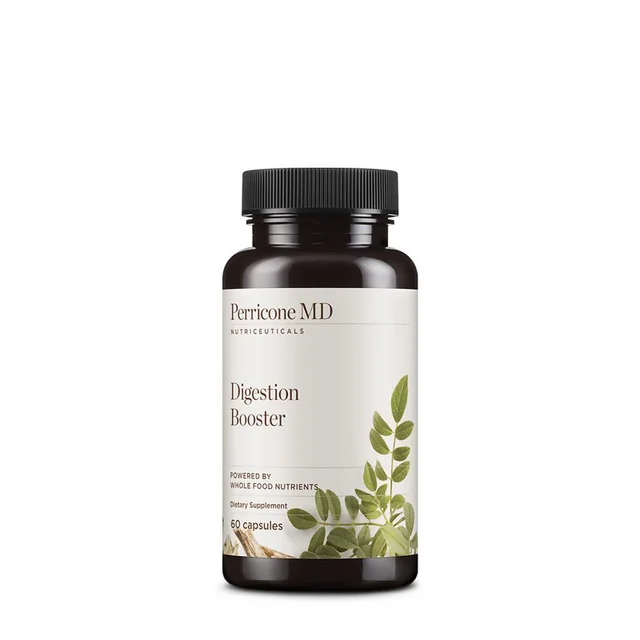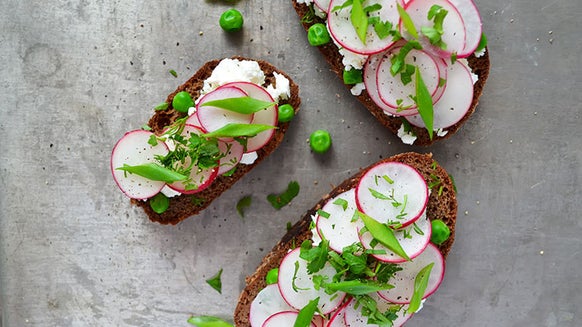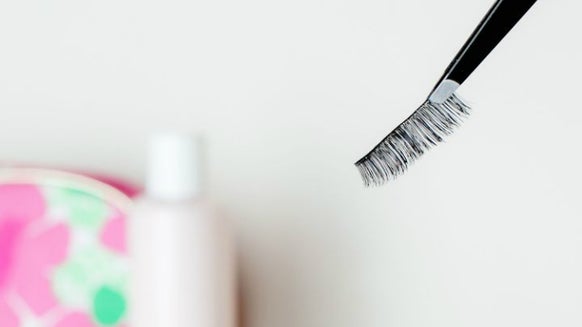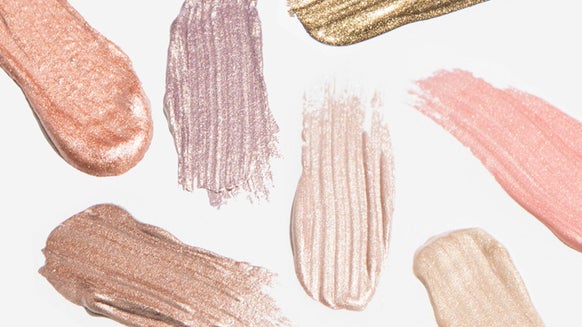11 Dietician-Approved Tips to Beat Post-Holiday Bloating
If you found yourself over-indulging during the holidays, before you torture yourself with a fad diet or cleansing program, take a closer look at the habits that may be bringing on the bloat. To help you learn what causes stomach bloating, we chatted with the experts to discuss everything from foods that cause bloating to how to prevent this.
Ready to embrace a gas-free tummy? Commit these dietician-approved tips to memory and you’ll be well on your way to a flatter tummy.
Tip #1: Follow the 80% rule.
Don’t wait until you physically can’t put another bite in your mouth. It takes our bodies up to 20 minutes to tell our stomach, “I’m full!” The trick is to eat slowly; appreciate the food and realize when you’ve had enough. When you put down the fork before reaching 100% fullness, your body will continue to digest and keep you from overeating, and in turn, defeats that overly full pant-popping sensation.
Tip #2: Get up and move after a meal.
Although you may think you’re multitasking by eating breakfast in your car, lunch at your desk and dinner in front of the TV, your efforts will be counterproductive and lead to poor digestion. Instead, you should try to get up and walk a bit after eating a meal or snack---even if it’s just taking a lap around your office building. Your body (and bloat) will benefit from this greatly.
Tip #3: Drink more water.
Bloating can be a sign of dehydration. “Most people think that when they are bloated, they are carrying around excess water. In fact, the opposite is true,” says Dr. Daryl Gioffre, celebrity nutritionist and author of Get Off Your Acid. To combat bloating, he recommends reaching for a tall glass of alkaline water with lemon or lime slices as soon as you begin to feel puffy. Water not only hydrates us when we’re thirsty, but it also plays an essential role in moving foods along in our systems. There’s no beverage that will “move you” better than water.
Tip #4: Stay away from sugar (artificial or otherwise).
It’s not just the amount of food that causes issues, but also the type. Take sugar for example. “The bacteria that live in the gut zero-in on sugary foods to break it down, which causes excess gas from the fermentation process and ultimately bloating,” explains Gioffre.
This rule of thumb also counts for when you reach for items like a Coke Zero. “Sugar substitutes are even worse as they are difficult or impossible to digest and highly acidic and inflammatory,” adds Gioffre. His advice? Look for and avoid sugar alcohols in products under guises such as sorbitol, mannitol and xylitol.
Tip #5: Find fibers that make your gut happy.
Most Americans don’t get enough fiber, but those of us who are troubled with belly bloat may be dining with the wrong fiber options. Richard A. Honaker, M.D., and Chief Medical Advisor for YourDoctors.Online, explains there are two types of fiber: Water-soluble (like oatmeal, nuts, beans, apples and blueberries) along with water-insoluble (like seeds and skins of fruit, whole wheat bread and brown rice). Our body reacts (and puffs up) to certain fibers. “Trial and error is best because everyone reacts differently. Eliminating one source of fiber for one week should be long enough to tell an effect,” Dr. Honaker concludes.
Tip #6: Steer clear of salty foods.
Salt acts as a magnet to water so go easy on foods that are naturally high in salt like pickles, olives and capers, and read labels of highly processed foods to check sodium content. The
Tip #7: Bid adieu to chewing gum and straw.
Chewing gum and sipping through a straw---most of us partake in one or the other (or both!) on the daily. However, every time you sip a beverage through a straw or mindlessly chew gum, you swallow air, essentially pumping gas bubbles into your belly. So while there are worse habits to worry about, if you’re guilty of these common tropes and a gurgly gut, you may want to cut back.
Tip #8: Keep a tea bag handy.
While these tips can certainly make a big difference in the belly bloat around your midsection, sometimes you might want a more immediate solution. One of the best natural remedies for stomach bloat is as simple as carrying a tea bag with you at all times. “A steamy mug of peppermint, chamomile or ginger tea can beat bloat and simultaneously soothe any tummy woes you may have,” says Bonnie Taub-Dix, RDN, creator of BetterThanDieting.com and author of Read It Before You Eat It—Taking You from Label to Table.
Tip #9: Look at your food combos.
“Healthy fats such as raw nuts, seeds (hemp, chia, flax), healthy oils (avocado, coconut, black cumin, extra virgin olive oil) and avocados are a great source of nutrients and fiber that will reduce inflammation,” says Dr. Gioffre. So while you may go extra-hard on the sweets around this time, combining them with a healthy fat will slow down how the sugars get metabolized and will tackle those foods that cause bloating.
Tip #10: Dial-down the dairy.
As you gobble down leftover turkey, you may want to give green beans a chance while letting your cousins have at the mashed potatoes. Why? Dr. Gioffre explains: “Avoid combing any animal proteins with starch. They digest in completely opposite ways. My suggestion, if you are going to eat animal protein, make it the sideshow, not the main event, and never combine it with a starch. Instead, combine the protein with vegetables and this will ease the bloating,” he notes.
Tip #11: Consider gluten as a culprit (not just a fad).
Gluten is a hot topic---fresh-out-the-oven hot. Why’s that? “It acts like glue in your digestive system, slowing everything down and clogging it up,” says Gioffre. But unless you have a gluten intolerance (e.g., Celiac disease), our experts don’t recommend cutting it out completely. However, if you regularly deal with bloating, it may be something to shift away from.

From the latest hair and makeup trends to the best solutions for your skin issues, we've got all your beauty concerns covered!
Related Posts

Your Beauty Checklist: How to Prep Your Skin and Hair for Your Holiday Parties







